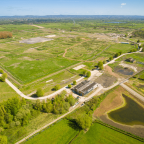
5 Causes of Hydraulic Pump Failure and Why Routine Service is Important
Hydraulic systems can be a crucial part of your business if your products require high-power density or systems with changing load requirements. They are widely used across industries since they are easy to maintain, reliable, long-lasting, and safe.
And do you know what is the core of these hydraulic systems operations?
The hydraulic Pump.
It’s the most critical and expensive component of any hydraulic system. And just like any other component, a hydraulic pump can fail from time to time.
But when a pump fails, it can cause numerous problems for the entire hydraulic system, thus hampering the production of a business. That’s why it’s necessary for you to know what causes the failure and how to prevent it.
While reading this article, you will learn some common reasons for hydraulic pump failure and why it’s important to have routine service.
5 Causes of Hydraulic Pump Failure
There are a number of factors that can cause a hydraulic pump failure. Some of these may becaused by using low-quality fluids or by poor system design. The pump may also fail due to human error and faulty maintenance practices.
Besides, there are different types of pumps available in the market, meaning that each of them will have their specific failure mode.
Following are some of the common causes of hydraulic pump failure.
Fluid contamination
Fluid contamination is one of the major and most common causes of hydraulic pump damage. Around 70% of hydraulic system failures are caused because of contamination, with debris contamination making up the largest portion.
It happens when particulates circulate through the system as a result of repairs, sealant, refilling, or welding slag. Once they mix with the fluid, they can cause friction, create buildup, corrode equipment, change the fluid’s chemical and physical properties, and even degrade the system’s overall efficiency.
If not taken care of at the beginning, this contamination can lead to a system malfunction.
Fluid viscosity issues
When the hydraulic fluid within a pump breaks over time, it causes viscosity issues. If the viscosity is poor, it can cause excess heat and friction.
On the other hand, if the viscosity of the hydraulic oil is very high, it will be difficult for the oil to reach the pump. Viscosity increases due to low temperatures. If the systems are put under load before the oil reaches 70 degrees or more, it can damage the entire system through cavitation.
Excess heat
Excess heat can be disastrous for a hydraulic pump. It degrades the hydraulic oil and lowers the viscosity, which eventually increases the chance of leaks. And once the fluid loses its viscosity, it cannot lubricate the pump properly
Extremely hot fluid also increases the chance of a pump leak since it damages pump seals.
When exposed to heat, some hydraulic fluids can oxidize and thicken instead of thinning, restricting flow throughout the entire hydraulic system. It will eventually make your entire system heat up drastically.
If the pump runs at a high temperature for too long, it will lead to a pump failure. And when the hydraulic pump starts to fail, it will slowly damage the entire hydraulic system.
Implosion
Implosion not only causes an extreme failure for the hydraulic pumps, it also creates severe health hazards.
It happens when air bubbles within a hydraulic pump collapse on themselves, resulting in heat, noise, severe surface damage, and a negative impact on productivity and efficiency.
These bubbles create a powerful mechanical shock that makes the microjets impact the nearby metal. The implosion happens when the bubbles reach an area of low pressure, thus causing the vapor within them to condense.
Pump aeration
Aeration happens when hydraulic fluid traps dissolved air, large bubbles, or foams.
On the other hand, pump aeration relates to the air introduced through damaged pipe connectors, perished pump seals, leaking suction lines, and other forms of damage.
The unwanted air then mixes with the hydraulic fluid supply and makes it contaminated. Since the fluid is contaminated, it loses any of its functional properties and cannot conduct heat as efficiently.
So the aeration can cause rapid overheating and even impede the pump's stroke cycle, which can eventually damage the entire hydraulic system.
Maintenance equals prevention
As you already learned the reasons that may cause your hydraulic pump to fail, the next question that may come to your mind is what can be done to prevent this failure.
While maintenance is undoubtedly the best way to prevent hydraulic pump failure and ensure efficient and safe functions, routine checkups can be a good start.
It’s crucial to identify what causes the pump to not function properly to ensure proper maintenance. For example, if you find that the problem occurs due to viscosity issues, you may need to work on the temperature.
However, you don’t have to do it by yourself. If you don’t have enough technical knowledge, you may end up doing more harm than good.
That’s why it’s crucial that you opt for a professional hydraulic repair service the moment you find that your hydraulic pump isn’t functioning properly. Some reputed companies like CJ Plant can help you with expert diagnosis and repair services and protect your hydraulic systems from further damage.
Whatever you learn about your pump’s issues will help you become more careful and make proper maintenance to avoid similar issues in the future.
Conclusion
The hydraulic pump is the heart of the hydraulic systems and plays a vital role in industrial operations. As highlighted in this article, various factors, from fluid contamination to excess heat and aeration, can lead to hydraulic pump failure, posing significant challenges to production efficiency. Understanding these causes emphasizes the critical need for routine maintenance.
It’s important to identify specific issues for you to provide targeted maintenance strategies. While self-maintenance is an option, entrusting professional hydraulic repair services ensures expert diagnosis and prevents any unintentional damages.
While investing in professional services may look like an extra expense, doing so will ensure proper repair of your entire hydraulic system and eventually save you a lot of money. Besides, you will be able to focus on what’s necessary for your business while experts are doing their job.












